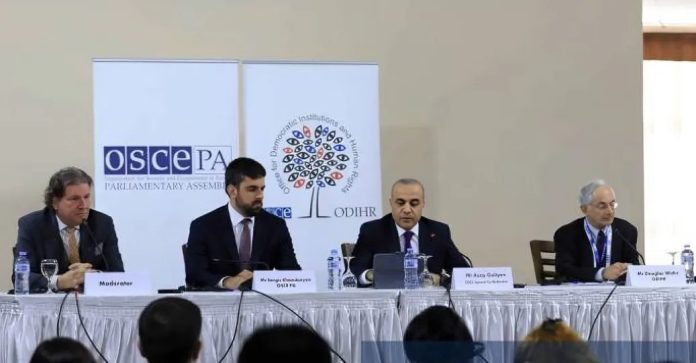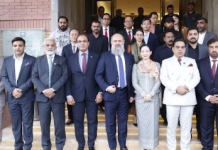Tashkent hosted a press conference of international observer missions representing the Organization for Security and Cooperation in Europe (OSCE) structures at the October 27 elections.
Azay Guliyev, Special Coordinator and Head of the OSCE short-term observers, Sargis Khandanyan, Head of the OSCE Parliamentary Assembly delegation, and Douglas Wake, Head of the OSCE Office for Democratic Institutions and Human Rights (ODIHR) election observation mission shared their impressions of the monitoring.
As noted at the meeting with journalists, Uzbekistan held parliamentary elections on October 27, which became a landmark event against the backdrop of large-scale reforms implemented in the country. These elections demonstrated significant changes in the electoral system and strengthening of democratic processes.
One of the most notable innovations was the expansion of women’s representation in parliament. The gender quota for candidates was increased from 30% to 40%, allowing women to occupy 47 of the 150 seats in the Legislative Chamber. This fact emphasizes the growing contribution of women to the political life of Uzbekistan.
It was also emphasized that the Central Election Commission (CEC) demonstrated a high level of reliability in preparing for the elections. Transparency of the electoral process was ensured by regular broadcasts and timely decision-making. Approximately 20 million voters were registered and the management of electoral processes was made accessible for public scrutiny. Legislative reforms in 2023 removed restrictions on voting rights for certain groups, demonstrating the country’s commitment to international standards.
The CEC also paid attention to inclusion, holding consultations to increase the participation of people with disabilities. Materials were available in Braille and translated into sign language during debates. Ballots were printed in Uzbek and local languages, facilitating accessibility of the electoral process for all groups.
Election day was calm and organized, with a voter turnout of 74.7%.
This indicates a high level of interest of citizens in the political life of their country. The 2024 parliamentary elections were an important step forward in strengthening democratic processes and improving women’s representation in politics. These reforms reflect the desire for a more open and inclusive political system, which is key to further development of Uzbekistan.

















